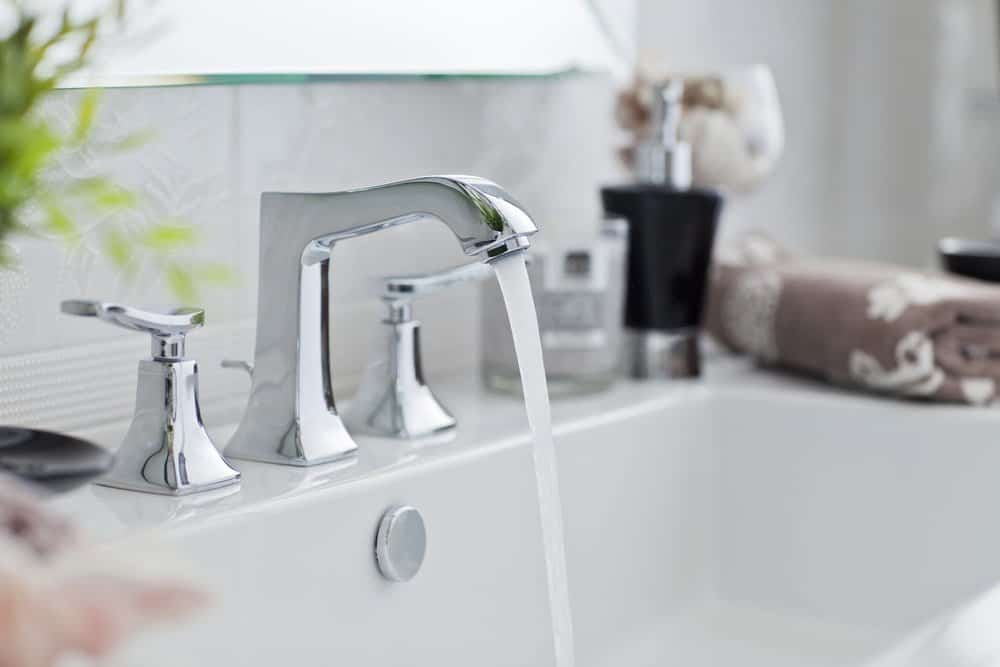WHY ARE THE BLACK SPECKS IN MY WATER?
When homeowners turn on a faucet, they expect to get crystal clear water every single time. But once in a while, they instead get contaminated water full of small black specks floating around. Plumbers receive calls about black specks in water all the time, but it’s still not a fun problem for homeowners to deal with.
Black specks in the water supply won’t necessarily make you sick if you drink them once, but they are hazardous to health in large enough amounts and often signal significant issues in your plumbing system. Here’s what you need to know if your water supply is suddenly full of unidentifiable black specks.
COMMON REASONS FOR BLACK SPECKS IN WATER
CORRODED WATER HEATER
In some situations, homeowners begin to notice black specks in drinking water particularly when they use hot water.
If this is the case, it’s most likely from corrosion inside the water heater. Water heaters wear down over the years, and can rust if not maintained. There are also certain rare cases where this kind of issue signals corrosion in your water lines that run to and from the water heater and your faucet. In either of these cases, not only should you stop drinking this water, you should call a plumber to flush out the water heater and faucet lines.
PIPE CORROSION
Another area of corrosion that may be causing the small black specks in your water is within your pipe system itself. This is an issue that can take place regardless of water temperature, and is almost certainly due to older pipes wearing down. As the pipes wear down, pieces break off and then enter your water stream.
When these specks are coming from the cold water taps, the issue is usually city pipes wearing down. They may be especially prevalent when your water company has instigated a shutoff for repairs, then turns the water back on.
DISINTEGRATED RUBBER
Sometimes, the pieces in your water are big enough to tell the material type. If you see pieces that have a rubber-like appearance and feel, it could be due to disintegrating washers, rubber gaskets, or supply hoses. Rubber is a durable material, but still breaks down after years of contact with both water and disinfectant. If you think the problem is from your plumbing’s rubber components, try shutting off your water supply while you inspect your rubber plumbing parts for wear.
EXCESS MINERALS
The water supply for most residential properties all comes from the same place. After the water travels through your city’s water treatment plant and turns into potable water, it travels through pipes and eventually to your home. But sometimes, the mineral levels at the plant are off and trace amounts of minerals like manganese and iron can get into the municipal water supply. If you think the black specks in your water are coming from the city’s water supply, have a plumber come by and test the water’s mineral levels. If you’re right, notify the city and government officials will be able to correct the situation.
If you use a private well to store and access your water supply, the specks in your water may also be from sand and silt inside the well. Even though those trace minerals aren’t necessarily dangerous to your health if you drink it once, it’s still not pleasant to see coming out of your pipes and can even degrade your plumbing over time. If you’re using a newly-dug well, let the water run for a few days to allow the silt to settle. You can also install a screen to filter the well water.
HOT & COLD WATER ISSUES
Many homeowners only notice black specks in their water when using a specific water temperature. If you only see water contaminants when using either just the hot or cold water, it can be a good indicator of the source of the black specks.
- Cold water. If you only notice black specks in your water only when using cold water, it’s likely from city pipe corrosion. Many homeowners see this happen after a city-wide power outage when water is turned back on and flowing through city pipes again. If this is the case, plumbers and contractors are trained on how to fix the issue.
- Hot water. If black specks are in your water only when you turn on the hot water, it may be from city pipe corrosion—but most of the time it’s a sign your home’s hot water heater is the source of the problem. Old and rusting hot water heaters transfer the metal particles from their interior into the water and out through the pipes. To get rid of the contamination from your hot water heater, you’ll have to have a plumber fully flush out your heater or buy a replacement unit.
CALL THE EXPERTS
At Expert Services- Plumbing, Heating, Air & Electrical, the quality of the water in your home is a top priority for our plumbers. Whether we’re installing new water fixtures, replacing a filter, or even assisting with drain cleaning services, ensuring your water is safe to use will always be important to us. If you want to learn about any of our plumbing or HVAC services, feel free to talk to our expert plumbers today.
